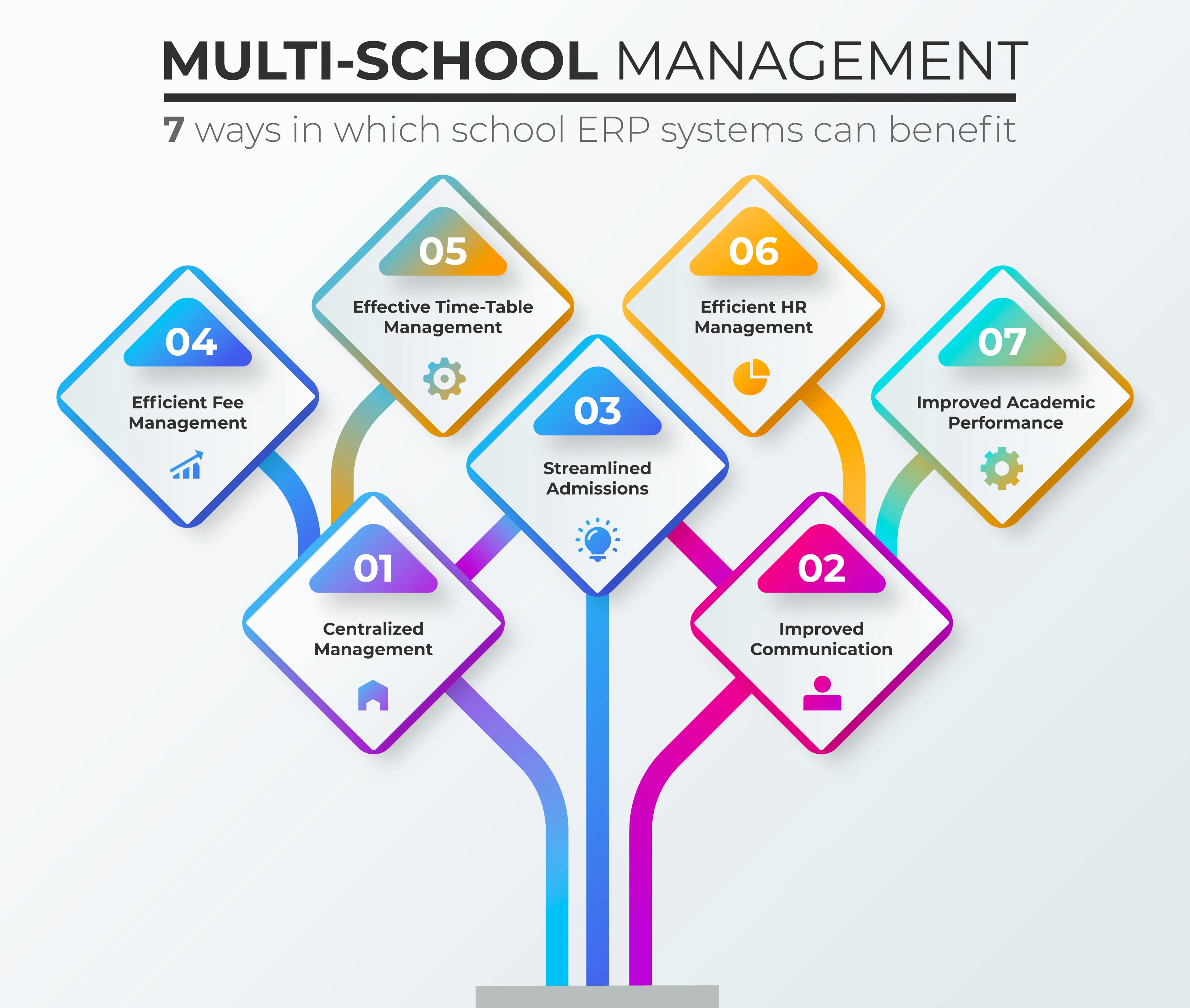
- Student Zone
-
Student Growth serves as a space for students, K-12 educators, parents and school professionals.
Schools today are no longer limited to a single physical location. Many educational institutions have multiple branches located across different cities, states or even countries. Managing all these branches can be a daunting task, especially when it comes to coordinating administrative tasks, record keeping, and communication between different branches. However, with the advent of school ERP (Enterprise Resource Planning) systems, multi-school management has become much simpler and more efficient.
In this article, we will explore the benefits of a school ERP system and how it can help in managing multiple schools effectively.
What is School ERP?
A school ERP system is a software platform that helps educational institutions manage various administrative and academic activities in a centralized manner. These activities may include student admission and registration, attendance tracking, exam management, timetable creation, grade management, fee collection, inventory management, HR management, and more.
The ERP system allows administrators, teachers, parents, and students to access real-time information about all the activities and operations of the school. It also enables the schools to create and manage reports, analytics, and insights about the performance of the school.
Here are some ways in which school ERP systems can benefit multi-school management:

Centralized Management
A school ERP system allows for centralized management of all schools under the same management. The system can be configured to provide the same level of functionality across all schools, thereby ensuring consistency in processes and procedures. This eliminates the need for multiple administrators to handle the same task in different schools, reducing the workload and increasing efficiency.
Improved Communication
Effective communication is critical for multi-school management. An ERP system can provide a unified communication platform for all stakeholders, including administrators, teachers, parents, and students. It can be used to send out announcements, notifications, circulars, newsletters, and other important information. The system can also facilitate two-way communication, allowing stakeholders to interact and collaborate with each other.
Streamlined Admissions
Admissions can be a complex process, especially for schools with multiple branches. A school ERP system can simplify the process by providing a centralized admissions platform. It can be used to manage applications, generate merit lists, and allocate seats across all schools. The system can also provide real-time updates to parents about the status of their child's admission.
Efficient Fee Management
Managing fees across multiple schools can be challenging. An ERP system can automate the fee management process, from generating invoices to tracking payments. It can provide a centralized view of all fee-related activities, including pending payments, late fees, and refunds. The system can also send automated reminders to parents about pending payments.
Effective Time-Table Management
Creating and managing timetables across multiple schools can be a tedious task. An ERP system can automate the process, considering the availability of teachers and resources across all schools. The system can also generate reports and analytics about the utilization of resources, helping administrators make informed decisions about scheduling.
Efficient HR Management
Managing human resources across multiple schools can be a daunting task. An ERP system can simplify the process by providing a centralized platform for HR activities. It can be used to manage employee records, payroll, attendance, and leave management. The system can also generate reports and analytics about employee performance, helping administrators make informed decisions about promotions, transfers, and rewards.
Improved Academic Performance
An ERP system can help improve academic performance across all schools. The system can provide real-time access to academic records, including grades, attendance, and performance reports. This can help teachers identify areas where students need additional support and provide targeted interventions. The system can also generate reports and analytics about student performance, helping administrators make informed decisions about curriculum and instructional practices.
In conclusion, a school ERP system is a powerful tool for multi-school management. It provides a centralized platform for managing administrative and academic activities, improving communication and collaboration, and generating insights and analytics about school performance.
With the help of a school ERP system, administrators can efficiently manage multiple schools, ensuring consistency in processes and procedures across all branches. They can also provide real-time updates to parents and students about all school-related activities, enhancing the overall experience for all stakeholders.
In today's fast-paced world, where education is constantly evolving, school ERP systems have become an essential tool for managing multiple schools effectively. By leveraging the power of technology, educational institutions can streamline their operations and focus on what matters most - providing high-quality education to students.
Overall, a school ERP system is a valuable investment for educational institutions looking to improve their multi-school management capabilities. It can help schools save time, reduce costs, and increase efficiency, ultimately resulting in better academic outcomes for students.